Dubai, MINA – Mohammed Bin Rashid Space Center (MBRSC) announced that Sultan AlNeyadi will be the first Arab astronaut to undertake a spacewalk during Expedition 69 on the International Space Station (ISS) scheduled for Friday, April 28, 2023.
The United Arab Emirates (UAE) will be the 10th country to do a spacewalk on the ISS. AlNeyadi will be part of the 262nd spacewalk to support the assembly, maintenance and upgrades at the space station, UAE News Agency WAM reported on Sunday.
Astronauts selected for spacewalk on the ISS undergo a rigorous selection process based on their skills, experience and adaptability to the challenging space environment.
They must demonstrate exceptional proficiency in areas such as engineering, robotics and life support systems, as well as excellent physical fitness and mental endurance.
Also Read: The Forty-Four-Days of Glory: Azerbaijan’s Struggle for Justice and Peace
Spacewalks, also known as Extravehicular Activity (EVA), on the ISS are essential for maintaining, upgrading and enhancing the capabilities of the orbiting laboratory.
These spacewalks enable astronauts to perform tasks such as maintenance and repair of critical systems, installation of new technology and hardware, and assembly and construction of ISS modules.
Furthermore, spacewalks on the ISS symbolize international cooperation, with astronauts from different countries collaborating and promoting the sharing of knowledge and resources.
Given the high risks associated with space travel, only selected, qualified astronauts get the chance to perform the essential tasks.
Also Read: Palestine Solidarity Month: A Collective Movement for Al-Aqsa and Palestine’s Freedom
The EVA process is not only physically challenging due to the pressure of clothing, but also mentally demanding – astronauts must focus on the job they are doing and their safety, the large number of potential tools and interacting with the crew and team at mission control.
AlNeyadi trained for more than 55 hours at NASA’s Neutral Buoyancy Laboratory (NBL) at Johnson Space Center in Houston, Texas in preparation for space travel. During his time at the NBL, AlNeyadi undertook nine runs of six hours each, training simulated underwater spacewalks using a complete mock-up of the ISS.
The fifth spacewalk from the ISS this year and the third for Expedition 69 will be a watershed moment as NASA Flight Engineers Stephen Bowen and AlNeyadi work together to carry out important tasks.
The highly anticipated EVA is projected to last approximately 6.5 hours, giving astronauts a unique opportunity to experience the vastness of space while working to maintain and upgrade the ISS. Their teamwork and collaboration will not only demonstrate each other’s skills but also emphasize the importance of international cooperation in advancing human space exploration.
Also Read: Hassan al-Turabi: A Controversial Thinker from Sudan
One of EVA’s main goals is to retrieve the critical Radio Frequency Group (RFG) unit, which is an integral component of the ISS’s S-Band communications suite. This important communications equipment will be returned to Earth on SpaceX flights.
Apart from the main task, AlNeyadi and his team will work on a series of preparatory tasks related to the EVA solar panel installation planned for the mission later. Solar arrays play a critical role in powering the ISS, providing clean, renewable energy to support the various experiments, systems and day-to-day operations onboard.
Chairman of the MBRSC, Hamad Obaid AlMansoori, said, Sultan AlNeyadi’s historic spacewalk is a testament to the UAE’s unwavering dedication to advancing the boundaries of space exploration and fostering international cooperation.
“As the first Arab astronaut to perform an EVA, AlNeyadi carries the aspirations of the entire region and symbolizes the limitless possibilities of our collective achievement,” he said.
Also Read: Who Exactly is the RSF Group Shaking Sudan?
Obaid AlMansoori added, “This milestone is also a manifestation of our long-term vision to strengthen the UAE’s position as a global leader in space, science and technology.
“Because we continue to inspire future generations to pursue knowledge and innovation relentlessly,” he said.
Director General, MBRSC, Salem Humaid AlMarri, stated, as the first Arab astronaut to do a spacewalk, Sultan AlNeyadi’s milestone shows his commitment to pioneering space exploration and contributing to the global space community.
“This extraordinary event, taking place during the history of the Arab space mission, not only signifies a tremendous achievement for the UAE and the region, but also highlights the continued international collaboration and scientific progress on the ISS,” concluded Humaid.
Also Read: The Two-State Solution (Palestine–Israel) in Historical Perspective
Space Physics Research
AlNeyadi has just completed a month in space, after launching from Cape Canaveral in Florida with members of the Crew-6 team on March 2 at 09:34 UAE time.
The crew then docked with the ISS after a 25-hour flight on March 3 at 10:40 UAE time and entered the station at 12:45 UAE time the same day.
AlNeyadi has officially started Expedition 69 together with his colleagues, following the recent takeoff of the Soyuz MS-22 spacecraft.
Also Read: Enchanted by K-Dramas, Dragged into Slander: Time for Muslims to Rise!
Human research activities have dominated the crew’s schedule on the ISS, which includes ultrasound scans, vision checks, and hearing checks.
AlNeyadi participates in various activities with his fellow crew members. The astronauts aim to gain insight into space- and Earth-induced heart conditions, with Bowen attaching electrodes to himself and marking blood vessels for investigations of Vascular Aging.
In another session, Bowen, Frank Rubio, and Dmitri Petelin performed eye exams on their crew, including AlNeyadi, using standard medical imaging equipment found in an ophthalmologist’s office on Earth.
Space physics is also part of the research agenda, as scientists and engineers seek to understand how Earth-created materials react to microgravity conditions.
Also Read: Creating Opportunity and Avoiding Misery; Lesson Learn on Waste Recycling Issue
AlNeyadi next focused on cargo work, unloading some of the 2,800 kg of new science experiments, crew equipment and station hardware delivered by the SpaceX Dragon supply ship.
Meanwhile, the crew continued various experiments, such as serving samples in the Electrostatic Levitation Furnace and studying the dispersion of bubbles and droplets in liquids for the Foam and Emulsion experiments.
The crew will next conduct several experiments, including investigating the effects of microgravity on material combustion to improve spacecraft safety, testing new tools for deep space immunity monitoring, and advancing research on 3D cultured cardiac muscle tissue to evaluate human heart function in gravity. micro.
AlNeyadi will also be involved in community outreach programs, including live calls and ham radio interactions, in addition to maintenance duties on the ISS.
Also Read: Between the Treaty of Hudaybiyyah and Ceasefire in Gaza
The UAE Astronaut Program is one of the projects managed by the MBRSC under the UAE National Space Program. It is funded by the ICT Fund of the Telecommunications and Digital Government Regulatory Authority (TDRA), which aims to support research and development in the ICT sector in the UAE and promote the integration of the country on the global stage.(T/RE1)
Mi’raj News Agency (MINA)
Also Read: Peace Cannot Be Achieved Without a Palestinian State






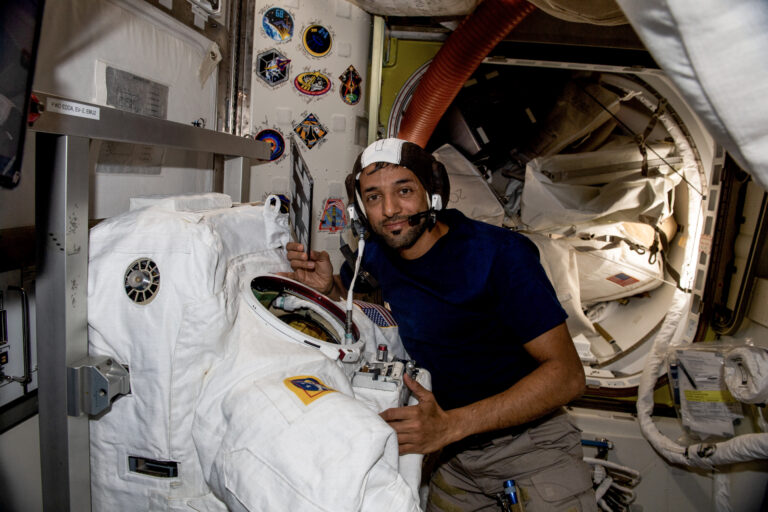

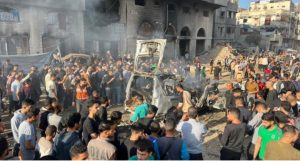
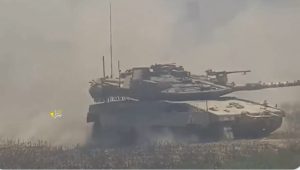
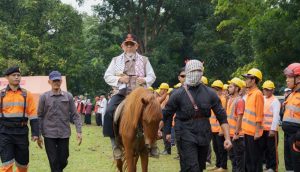
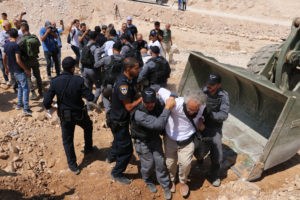
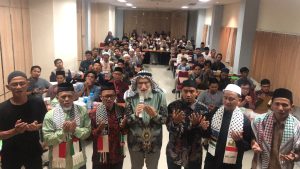
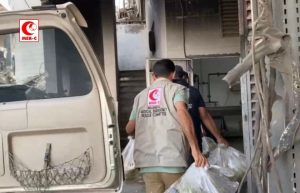
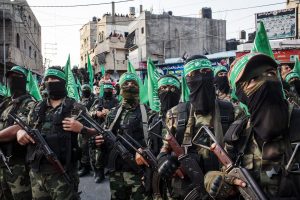
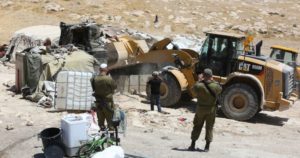
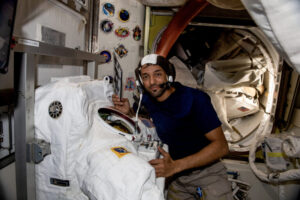













 Mina Indonesia
Mina Indonesia Mina Arabic
Mina Arabic